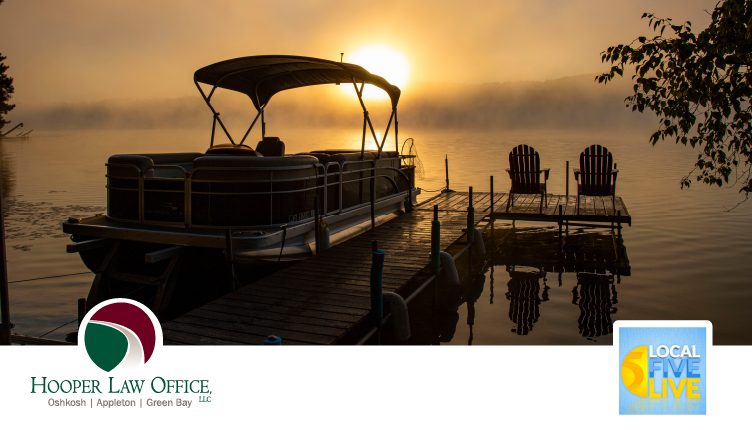
Protecting and Preserving the Family Cottage in Estate Planning
If you own a cottage, cabin, or up-north property that you enjoy with your family, including that property in your Estate Planning is vital to avoiding conflict among loved ones down the road. Attorney Justin Randall appears on Local 5 Live to share important Estate Planning tips regarding your second property and how you can protect the property and your family from conflict.
Millaine Wells
This summer, many Wisconsin families will partake in a time honored tradition, and that's heading up north.
Lisa Malak
These up north properties hold a special place in the hearts of Wisconsinites. So it's important to consider how these cottages, cabins, or hunting lands can be included in your Estate Plan.
Millaine Wells
Justin Randall from Hooper Law Office, an Estate Planning firm serving Appleton, Oshkosh, and Green Bay, is joining us with more on the topic. Good morning to you, Justin.
Justin Randall
Good morning, guys.
Millaine Wells
So what actions can I take to help keep maybe a family cottage or something like that in our family for multiple generations?
Justin Randall
Yeah. So the first thing I always recommend is have a discussion with the family, the people you think might want to be involved in that property. Because before you go into any sort of in-depth planning with the legal documentation, you know, maybe rules or restrictions you're putting in place, knowing whether or not people actually want to be involved in that property is important, too. I think a lot of people we talked to haven't even gotten to that step yet, where they have an idea of what they want but haven't talked to the kids or the other people who might be involved.
But once you go through that and you have an idea of, okay, these are the people who we want involved in this, then you want to look at what sorts of rules and restrictions do we want to put in place? Are there, you know, agreements we want to put in place in terms of what would happen if something is sold or people want to sell the property? Who has a right to buy those other shares? And that can be done in a lot of legal documentation and things like setting up LLC or other sorts of entities to hold that property. Those allow you to set up agreements with those rules in place.
Lisa Malak
Justin How can families avoid conflict over cottage disputes?
Justin Randall
So doing any amount of planning is always a great first step because a lot of times these things just sort of fall into people's lap and, you know, they just own the property with their siblings maybe. And once that's done, once that transfer has occurred, there's no real way to stop those disputes. If there will be any. There's no structure in place to deal with them.
So first and foremost, having that structure in place is essential if you want to provide ways to at least deal with those disputes. Discussions, again, are very helpful when somebody is worried about what kinds of disputes might come up because those give you a sense of what you might need to be looking for. You're not going to always be able to avoid all disputes. I mean, you can't predict everything, but having some sort of entity in place to hold that property with rules governing that entity is very important. If you want to provide the family a tool to deal with any disputes.
Millaine Wells
And Justin, it's probably easier when someone from your team is bringing up these ideas a little less invested, so to speak, and it kind of a neutral party.
Justin Randall
Absolutely. It's families often have sort of vested interests in things, and they maybe have past history where that causes further dispute. If somebody is bringing up these sorts of suggestions. So having some neutral third party could be very helpful.



